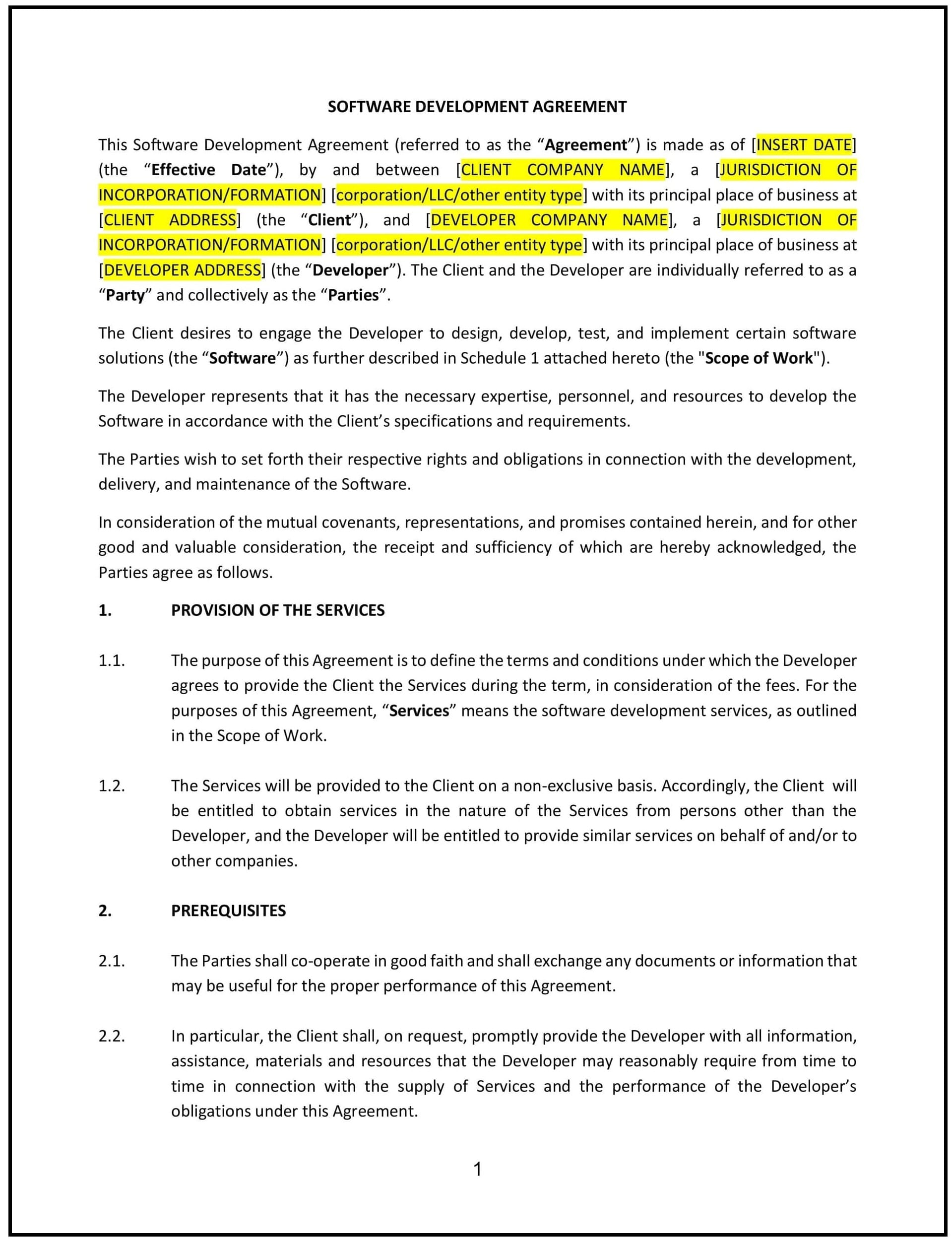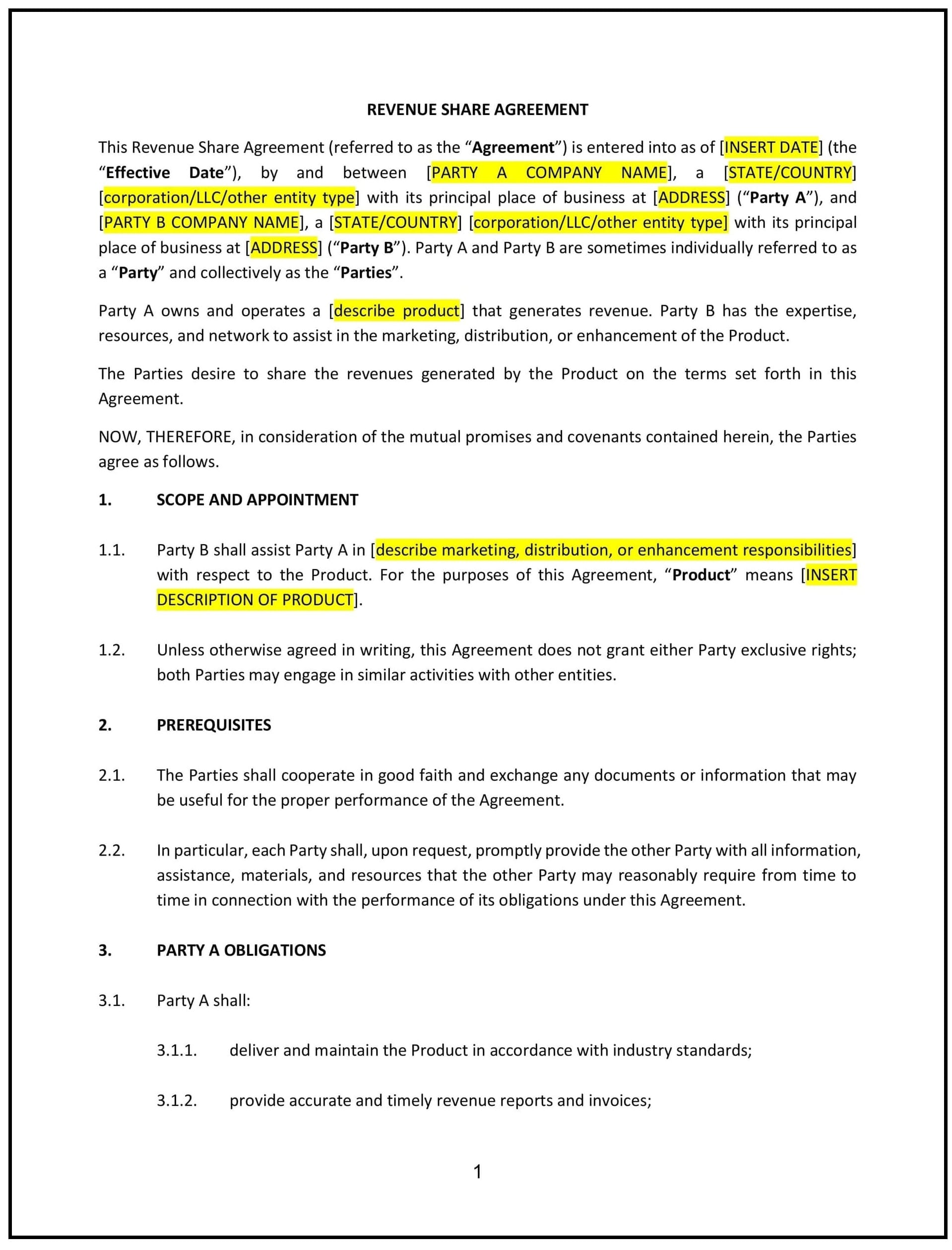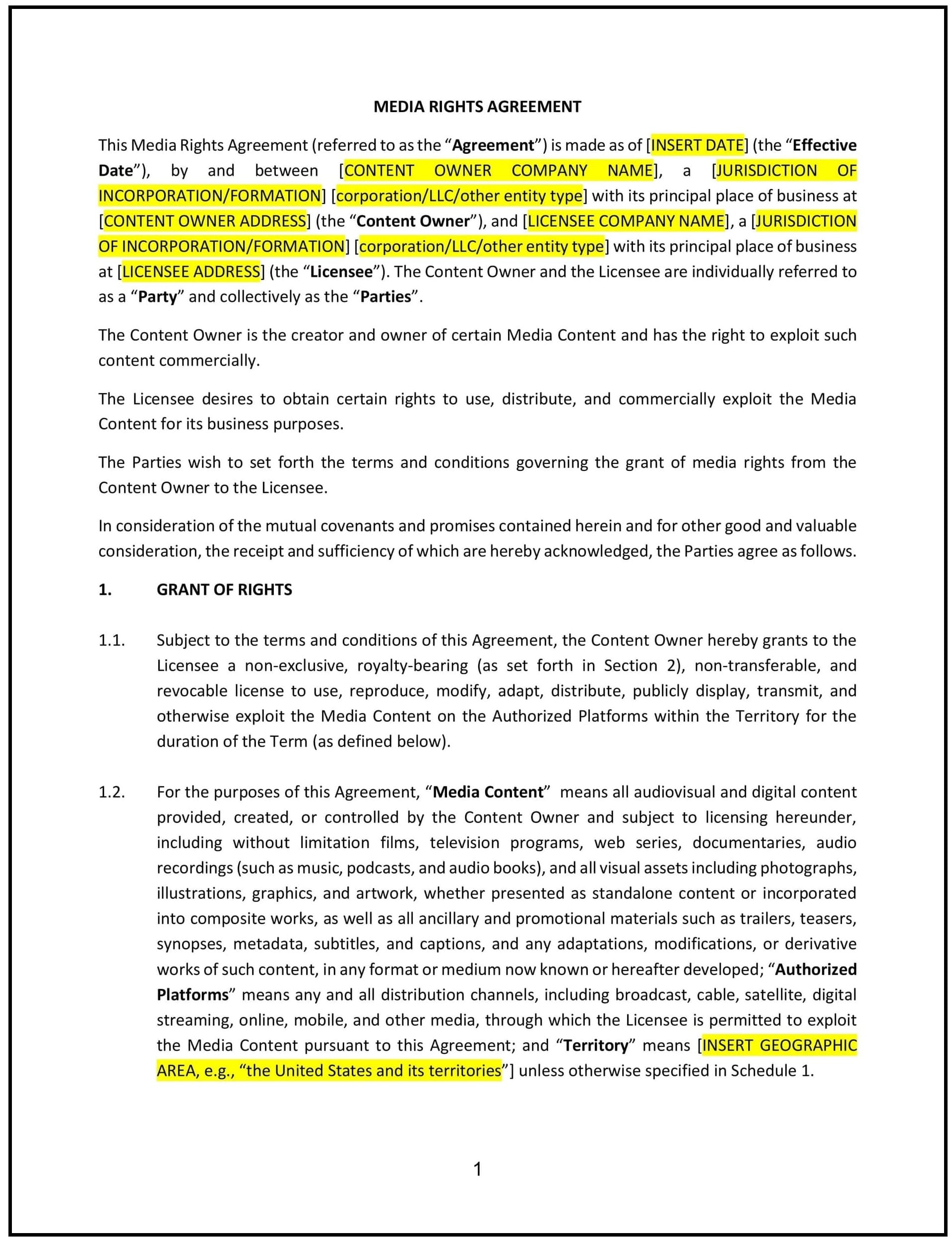Business Development Agreement (California): Free template
Business Development Agreement (California)
A Business Development Agreement is a legally binding contract between two or more parties that outlines the terms and conditions under which one party will assist the other in expanding its business operations, increasing revenue, or entering new markets. In California, such agreements are governed by state contract laws and must comply with consumer protection regulations, including the California Consumer Legal Remedies Act and the Unfair Competition Law. It is essential for businesses to establish clear agreements that address deliverables, payment terms, and performance expectations.
For example, a San Francisco-based tech startup might hire a Los Angeles-based consultant to explore opportunities in the electric vehicle (EV) charging infrastructure market. A well-drafted Business Development Agreement ensures clarity on deliverables, timelines, and compliance with California’s legal framework.
Tips for drafting and maintaining a Business Development Agreement in California
- Define the scope of services: Clearly outline the business development services to be provided, such as lead generation, market research, partnership development, or strategic planning. Include specific deliverables and timelines.
- Example: “The Provider agrees to identify and secure at least five new partnerships for the Client within the first six months of the agreement.”
- Establish payment terms: Detail the payment structure, whether fixed-price, commission-based, or performance-based. Include invoicing procedures, due dates, and penalties for late payments.
- Example: “The Client agrees to pay the Provider a monthly retainer of $7,000, plus a 15% commission on all revenue generated from new partnerships secured by the Provider.”
- Include performance metrics: Define how the success of the business development efforts will be measured, such as through key performance indicators (KPIs) like new client acquisitions, revenue growth, or partnership deals closed.
- Example: “The Provider will deliver a quarterly report detailing new client acquisitions, revenue growth, and partnership progress.”
- Address intellectual property rights: Specify who will own the intellectual property (IP) for any strategies, materials, or campaigns created during the engagement. Typically, the Client retains ownership, while the Provider may retain rights to pre-existing materials used.
- Example: “Upon full payment, the Client will own all intellectual property rights to the strategies and materials developed. The Provider retains ownership of any pre-existing materials used.”
- Set confidentiality obligations: Include a confidentiality clause to protect sensitive information shared during the engagement, such as business strategies, financial data, or customer information.
- Example: “Both parties agree to keep all confidential information disclosed during the engagement confidential for a period of three years after the agreement’s termination.”
- Outline termination provisions: Define the circumstances under which the agreement can be terminated, such as breach of terms, failure to meet performance metrics, or mutual consent. Include steps for winding down the engagement.
- Example: “Either party may terminate this agreement with 30 days’ written notice if the other party fails to comply with the terms outlined herein.”
- Align with California-specific laws: Ensure the agreement complies with California’s contract laws and consumer protection regulations, including the California Consumer Legal Remedies Act and the Unfair Competition Law.
- Example: “This agreement shall be governed by and construed in accordance with the laws of the State of California. Both parties agree to comply with all applicable state and federal laws.”
Frequently asked questions (FAQs)
Q: Is a Business Development Agreement enforceable in California?
A: Yes, as long as the agreement is clear, mutually agreed upon, and complies with California contract laws, it is legally enforceable.
Q: What key elements should a Business Development Agreement include in California?
A: It should include the scope of services, payment terms, performance metrics, intellectual property rights, confidentiality obligations, termination provisions, and compliance with California laws.
Q: Can a Business Development Agreement be terminated early in California?
A: Yes, if the agreement includes a termination clause, either party can terminate the agreement with reasonable notice. The terms should specify the conditions and procedures for termination.
Q: What industries frequently use Business Development Agreements in California?
A: Industries such as technology, entertainment, healthcare, real estate, and agriculture frequently use Business Development Agreements in California. For example, a San Diego-based biotech company might hire a consultant to expand its clinical trial partnerships.
Q: How can disputes over a Business Development Agreement be resolved in California?
A: Disputes can often be resolved through negotiation or mediation. If necessary, disputes may be resolved in court or through arbitration, depending on the terms specified in the agreement.
This article contains general legal information and does not contain legal advice. Cobrief is not a law firm or a substitute for an attorney or law firm. The law is complex and changes often. For legal advice, please ask a lawyer.


